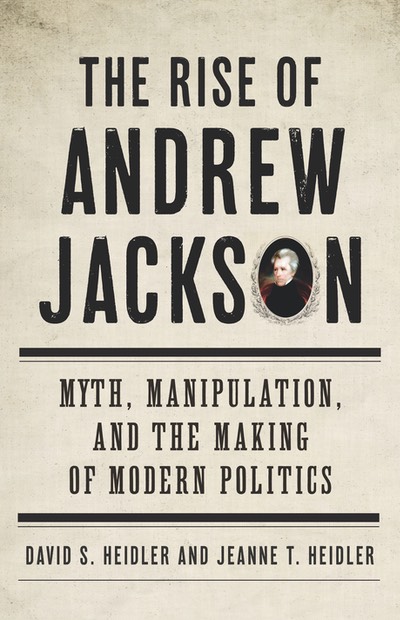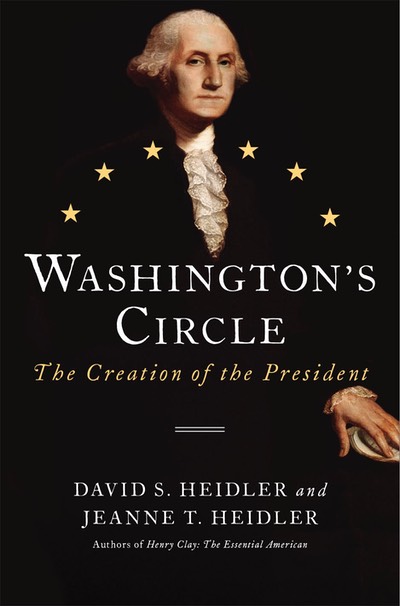In remembrance of the great American statesman who died on this date in 1848, we have drawn on and adapted for this post a portion of our forthcoming book The Rise of Andrew Jackson, which will be published this October.
_____________________
John Quincy Adams died one hundred and seventy years ago this evening, February 23, 1848. He was one of the world’s most accomplished men of his generation, and arguably the most accomplished American of his time. And yet, he frequently judged himself as something of a failure.
It is hard to see why. As a diplomat, he represented the United States in Britain, Prussia, the Netherlands, czarist Russia and served on the American commission that negotiated the end of the Anglo-American War of 1812, all before he was 50. As a scientist, he experimented with growing exotic trees on the ground and observed the courses of stars and planets in the skies, the latter an abiding interest in astronomy that had him urging the construction of observatories all his life. As a writer, he had the mind of a scholar and the heart of a poet, proving the one in packed lecture halls while on the faculty of his alma mater Harvard University; and the other by crafting verse that could be winsome or playful or romantic.
John Quincy Adams near the end of his life
As a statesman, he compiled a record of peerless public service. He held seats in the Massachusetts legislature and the U.S. Senate. As secretary of state during the James Monroe administration, he negotiated one of the most significant treaties in American history. He also drafted the principles of what would become famous as the Monroe Doctrine. As both boy and man, his life was exemplary: he was a dutiful son, a good husband, and a caring father whose frugality and prudent investments amassed a small fortune to ensure the comfort of his descendants.
Despite all this, from earliest youth to his death at age 80, John Quincy Adams had never been able to shake the nagging feeling that his life was aimless and wasted. Despite ceaseless industry, he filled his diary with lengthy introspections that bemoaned his laziness. On July 11, 1805, for example, there is this melancholy entry marking his birthday: “I enter this day upon my thirty-seventh year with sorrow to think how long I have lived and to how little purpose.” Nursing reflections like that, he could fall into crippling depressions that bore the signs of being clinical rather than psychological, bitter fruit springing from roots deep and abiding. Fellow New Englander William Plumer was the only man in the Electoral College to vote against James Monroe for the presidency in 1820. Instead, Plumer cast his ballot for John Quincy Adams. It was more than a symbolic act. It was a testament to Plumer’s admiration for a man he thought gifted, learned, and virtuous. But Plumer also knew Adams lacked “popular talents,” a man, Plumer sighed, who was “rather respected than beloved.” Adams, late at night and alone with his diary, would have sighed too.
“Respected but not beloved” could have been on the family’s crest. John Quincy Adams had inherited more than his father’s personality. He had the same compulsive desire for fame and approbation that had driven the elder Adams into frenzies of self-doubt and political immolation during his youth and middle age. For John Adams, who was slowly unraveling in his final years on his farm in Quincy, Massachusetts, the goads of ambition had mercifully abated to leave him relatively sanguine about the whip of history and the judgment of men. It was as if, however, the demon of ambition had left the soul of the old and palsied man to entwine around the heart of his son, goading him to seek acclaim in alien arenas whose audiences abided his opening act but were always impatient for the main event.
Adams was a scholar by training and temperament, but most of all he was an honest man cruelly cast into politics, which was a dishonest drama he never liked and a role in which he was forever forgetting his lines. He had the great misfortune to be the supremely talented son of a Founder, and because of that, John Quincy Adams carried the curse of always trying to find himself. For him, the presidency was more than an office of enormous responsibility. It was the way to exorcise the demon and stop being “Johnny Q.,” the comical child of a failed father. Johnny Q. would become the President Adams whose name would echo with those of Jefferson, Madison, and even Washington in the cracking whip of history. He would be the Adams lauded by the judgment of men.
Yet, politics was always an ordeal for him because it was much against his nature. He was a man of legendary reserve and appeared supernaturally indifferent to popularity. Those traits made him hard to get along with while masking his poignant inclination to effect reconciliations with men he had rubbed the wrong way. With ambition driving him, though, he became his own worst enemy in the pursuit of a righteous ideal. “There is no use in questioning his facts,” an astute observer noted, “because he is always right. His memory never fails him. He is a very difficult man to argue with, because he always grows keener and sharper with every attack.” It was not meant as a compliment.
John Quincy Adams became president in 1825 with high hopes and plans to rise above partisan politics, but his time in the White House was the most miserable of his life. It was in part because his political enemies succeeded in smearing him as corrupt — a profound irony in that he was one of the most scrupulously honest men ever to hold the office. He would not fire even opponents in his administration who were openly working against him. But Adams had the misfortune of achieving his dream at the same time Andrew Jackson was riding a cresting wave of overwhelming popularity. It made Adams’s dream something of a nightmare.
When Andrew Jackson trounced Adams in the election of 1828, he was philosophical about his defeat, up to a point. “I have only to submit to it with resignation,” he told his diary, “and to ask that I, and those who are dear to me may be sustained under it.” But in his next breath, his pen surrendered to crushing sadness. “The sun of my political life sets in the deepest gloom,” he wrote.
As he resigned himself to retirement and returning to his first love, which was scholarly writing, John Quincy Adams could not have known that his failed presidency was a milepost rather than a destination, making him unique among those who have held the office. He soon returned to public life by winning a seat in the House of Representatives where he would represent Massachusetts districts for the rest of his life. And during the almost two decades that followed his return to Washington in 1831, he achieved his greatest glory by fighting slavery in both Congress and the courts. He secured the repeal of the infamous “gag rule” that forbade the reading of anti-slavery petitions in the House, and he successfully defended the Africans who had taken over the slave ship Amistad by persuading the Supreme Court to grant them their freedom.
His colleagues dubbed him “Old Man Eloquent” and might have thought he had achieved true immortality as he aged without losing the spring in his step and grew old without losing the keenness of a mind sharper with every attack. When a stroke in November 1846 left him feeble but outwardly undaunted, he and his family knew better. In fact, he dated his decease from that November 20th when he was on an outing and suddenly discovered he could not make his legs work. His diary, always his most trusted confidant, became, in his words, a “posthumous memoir,” and the fifteen months remaining to him were a haze of occasional flashes of the old brilliance faltering toward increasing enfeeblement.
Nevertheless, as he had always done, for this last ordeal he again mastered himself with iron discipline and refused to succumb to “indolence,” the thing that his father had never tolerated and young Johnny had always imagined to be his own greatest flaw. He was at his desk in the House chamber on February 21, 1848, when his face flushed a bright crimson. He clawed the air before losing consciousness. “Mr. Adams is dying!” a colleague shouted. They took him to the Speaker’s chamber where he came to and began asking for friends and family, but soon he was unable to see or hear them. Perhaps he could hear, however, the cracking whip of history. We can only hope that he would know that the judgment of men would not only laud him with respect but also, and at last, with something else — something that rather resembled love.



